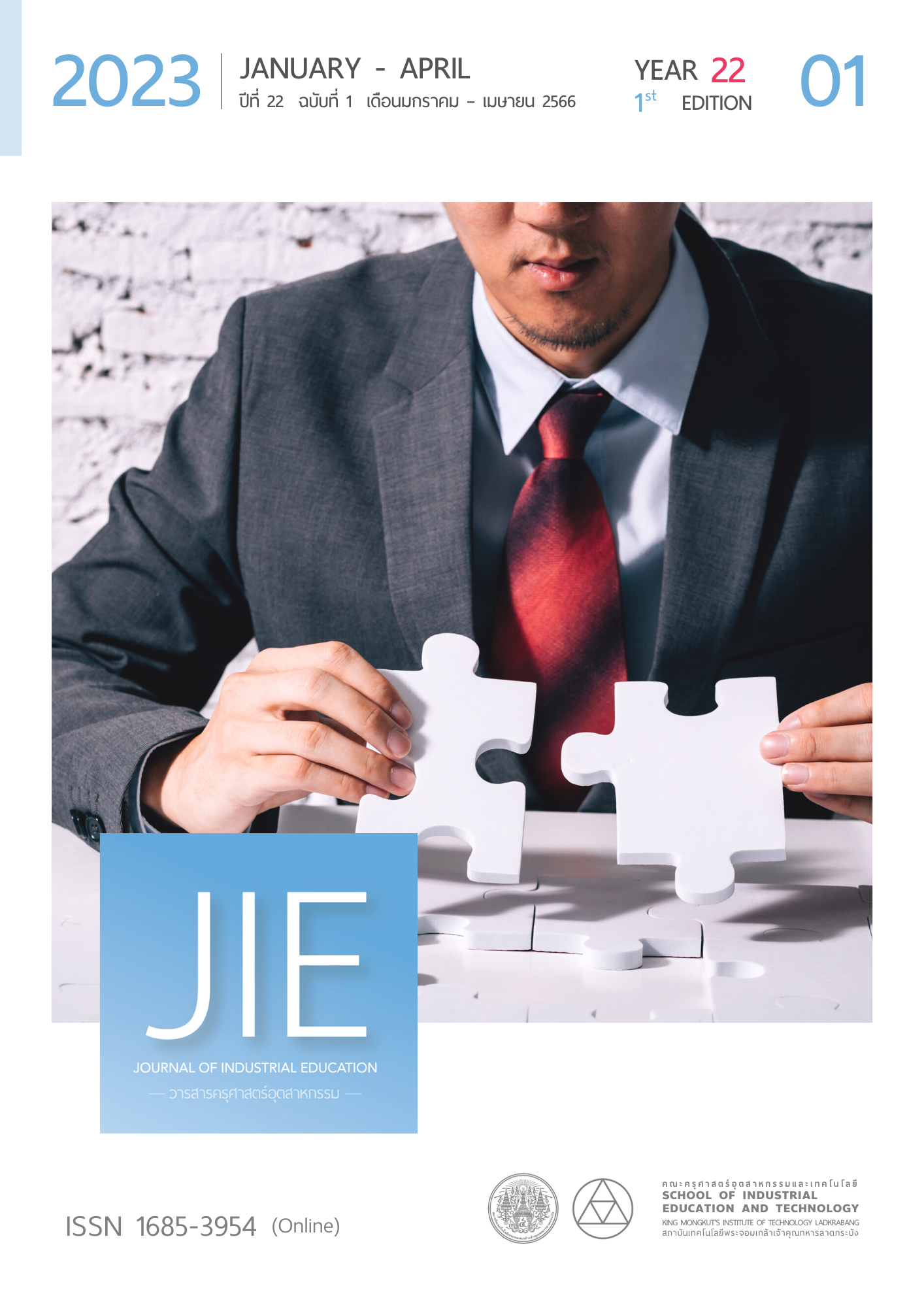RELATIONSHIP BETWEEN ATTITUDES TOWARDS ONLINE LEARNING AND ENGLISH LEARNING ACHIEVEMENT AMONG STUDENTS AT PRINCE OF SONGKLA UNIVERSITY, SURAT THANI CAMPUS
Keywords:
Online learning, Attitudes, English learning achievementAbstract
This research was to study at examining participants’ attitudes towards online learning among Thai EFL undergraduate students and investigating relationship between attitudes towards online learning and English learning achievement among the Thai EFL undergraduate students. By employing the convenient sampling method, 303 freshmen of Prince of Songkla University, Surat Thani Campus, were selected as participants in this study. The research instrument was a questionnaire consisting of two sections: participants’ background and attitudes towards online learning. The data were analyzed using frequency, percentage, mean, standard deviation, and Pearson’s product moment correlation coefficient to examine the relationship between the attitudes and English learning achievement. The findings revealed that the participants’ attitudes towards all aspects were averagely at a high level, namely, attitudes towards teachers ( = 3.94, SD = 0.84), learning assessment and evaluation (
= 3.75, SD = 0.81), teaching methods and learning activities (
= 3.72, SD = 0.79), The participants’ anxiety on online learning (
= 3.50, SD = 0.89), and online learning management (
= 3.49, SD = 0.91). Furthermore, the results between attitudes towards online learning and English learning achievement showed positive relationship with the level of statistical significance at .05 (r = .116, p = .044).
References
Fakcharoenphol, W., Chaowatthanakun, K., Varasunun, P., Nugultham, K., Laohammanee K., Suwannaphichat, S., & Suwan, S. (2020). Readiness to implement online learning management under the COVID-19 pandemics. Journal of Education and Human Development Sciences, 4(1), 44-61. (in Thai)
Limpiteeprakan, P., Junnual, N., Saenrueang, T., & Pangjit, K. (2022). Attitudes towards online teaching and learning management among Ubon Ratchathani University students. Journal of Educational Technology and Communications, Faculty of Education Mahasarakham University, 5(14), 176-187. (in Thai)
Khunrach, T. (2017). The study on the factors associated with learning achievement of students from Faculty of Education in Central Campuses of Institute of Physical Education [Master’s thesis]. Institute of Physical Education Suphanburi Campus. (in Thai)
Kenan Foundation Asia. (2020). The COVID-19 pandemic causes three important impacts on Thai education. https://www.kenan-asia.org/th/covid-19-education-impact/ (in Thai)
Kumrot, S. (2012). Factors affecting learning achievement of the first year student’s at University of Phayao [Master’s thesis]. University of Phayao. (in Thai)
Likert, R. (1967). The method of constructing and attitude scale. In M. Fishbein (Ed.), attitude theory and measurement (pp. 90-95). Wiley.
Limratanamongkol, P., & Vicheanpanya, J. (2013). Critical success factor of online learning toward student of Thai Cyber University Project. RSU Library Journal, 19(2), 54-63. (in Thai)
Lohday, K. (2022). Influencing factors of students’ learning achievement in business English courses at Valaya Alongkorn Rajabhat University under the Royal Patronage. Valaya Alongkorn Review (Humanities and Social Science), 12(2), 61-74. (in Thai)
Nitjvarunkul, K., & Komomtree, P. (2007). Factors related to academic achievement of undergraduate students with low achievement in the Faculty of Education, Prince of Songkla University, Pattani Campus [Master’s thesis]. Prince of Songkla University, Pattani Campus. (in Thai)
Pecharawech, P., & Kittivaratorn, P. (2021). A guideline on learning evaluation COVID situation. Journal of Buddhist Studies Vanam Dongrak, 8(2), 103-115. (in Thai)
Pinyosinwat, P. (2020). How to manage teaching in the situation of COVID-19: From foreign lessons to Thai learning management. https://tdri.or.th/2020/05/examples-of-teaching-and-learning-in- covid-19-pandemic. (in Thai)
Poonpol, S., & Annpaboriboon, P. (2020). A survey of pharmacy students' opinions towards online teaching and learning during the COVID-19 period to design a new learning management guideline for the Faculty of Pharmacy, Siam University. http://thailandpod.org/training/2020/conf15/doc/poster/ดร.เสถียร%20พูลผล%20(Poster).pdf. (in Thai)
Railean, E. (2012). Google apps for education: A powerful solution for global scientific classrooms with learner centred environment. International Journal of Computer Science Research and Application, 2(2), 19-27.
Ruengprapan, C. (1996). Basic statistics. Klang Nana Wittaya Printing. (in Thai).
Sangkasuth, S., & Trimek, J. (2021). Students’ Satisfaction towards appropriate online teaching and learning models in the epidemic of COVID-19 of Rangsit University. https://rsucon.rsu.ac.th/files/proceedings/nationalsoc2021/1807_20210511144007.pdf (in Thai)
Sikkhaman, K. (2011). A study of achievement in learning subject: Business English communication teaching by e-learning. Sripathum University. (in Thai)
Wongthong, P. (2021). Online learning management in new normal for upper elementary school students. Rajapark Journal, 15(43), 101-117. (in Thai)
Downloads
Published
How to Cite
Issue
Section
License
Copyright (c) 2023 Journal of Industrial Education

This work is licensed under a Creative Commons Attribution-NonCommercial-NoDerivatives 4.0 International License.
"The opinions and contents including the words in papers are responsibility by the authors."
"ข้อคิดเห็น เนื้อหา รวมทั้งการใช้ภาษาในบทความถือเป็นความรับผิดชอบของผู้เขียน"



